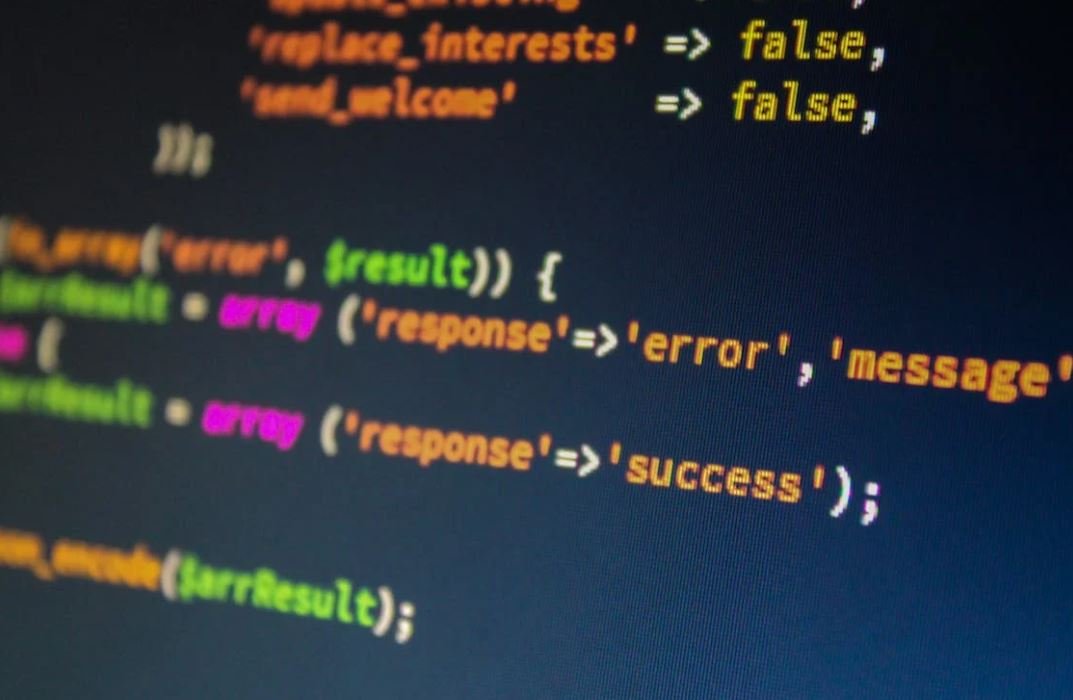AI for Math
Artificial Intelligence (AI) has revolutionized various fields, and now it has made its way into the world of mathematics. AI technology has the potential to enhance mathematical understanding, simplify complex calculations, and provide valuable insights. By leveraging machine learning algorithms and big data analysis, AI can assist both students and researchers in tackling mathematical problems and exploring new frontiers.
Key Takeaways:
- AI technology is transforming the field of mathematics by aiding in problem-solving, analysis, and data interpretation.
- Machine learning algorithms help identify patterns and make predictions in mathematical data.
- AI tools can assist students in learning math by providing personalized tutorials and adaptive learning experiences.
- The integration of AI in mathematical research accelerates discoveries and facilitates collaboration among mathematicians.
AI technology offers immense potential to revolutionize the way we approach and comprehend mathematical concepts.
A notable application of AI in mathematics is its ability to automate complex calculations. Mathematical problems involving large datasets or intricate formulas can be time-consuming and error-prone for humans. However, AI algorithms can swiftly process vast amounts of data and accurately perform calculations, saving time and ensuring accuracy. These algorithms are designed to handle complex mathematical operations, making them beneficial in fields such as physics, engineering, and finance.
By automating complex calculations, AI enables mathematicians to allocate their time and efforts to higher-level problem-solving tasks.
Machine learning algorithms play a crucial role in pattern recognition and prediction, and their application in mathematics is no exception. AI can identify patterns and relationships within mathematical datasets that may not be easily noticeable to humans. This ability to uncover hidden patterns has significant implications in various mathematical areas, including number theory, optimization, and cryptography. AI algorithms can assist in making predictions based on historical data, helping mathematicians formulate hypotheses and explore new mathematical theories.
AI for Personalized Learning
Personalized tutorials provided by AI tools can cater to individual learning styles and pace, making math education more engaging and effective.
AI technology offers immense potential in transforming math education. AI-powered tutoring systems can provide personalized learning experiences by adapting to the needs and abilities of individual students. These systems can analyze students’ strengths and weaknesses, identify conceptual gaps, and deliver tailored content and exercises to address their specific needs. Moreover, AI tutors can provide immediate feedback, track progress, and adjust their teaching strategies accordingly, fostering a more effective learning environment.
AI in Mathematical Research
AI facilitates collaborative research among mathematicians by providing tools for data analysis, theorem proving, and experimentation.
The integration of AI in mathematical research has opened up new avenues for discovery and collaboration. Researchers can leverage AI algorithms to analyze vast amounts of mathematical data, identify patterns, and explore new conjectures. AI tools can also aid in theorem proving, simplifying and automating the process of verifying mathematical proofs. Additionally, AI can facilitate virtual experimentation, allowing mathematicians to simulate complex mathematical scenarios and study their outcomes. This integration of AI technology in research expedites the advancement of mathematical knowledge and fosters collaboration among mathematicians worldwide.
| Field | Application |
|---|---|
| Physics | Simulating and predicting natural phenomena |
| Finance | Optimizing investment strategies and risk analysis |
| Engineering | Design optimization and algorithm development |
The integration of AI in mathematical research has opened up new avenues for discovery and collaboration.
The following tables provide an overview of AI applications in mathematics:
| Algorithm | Application |
|---|---|
| Support Vector Machines (SVM) | Number theory and cryptography |
| Artificial Neural Networks | Function approximation and data analysis |
| Random Forests | Data classification and clustering |
| Features | Benefits |
|---|---|
| Personalized tutorials | Cater to individual learning styles and pace |
| Immediate feedback | Enhance learning and understanding in real-time |
| Progress tracking | Monitor student achievements and identify areas of improvement |
As AI continues to progress, its impact on mathematics will only become more significant. Whether through automating complex calculations, assisting in pattern recognition, or enhancing math education, AI technology is transforming the field of mathematics. The exploration of new mathematical frontiers and the collaboration among mathematicians have been accelerated through the utilization of AI tools and algorithms. With AI as a powerful ally, the future of mathematics holds promising possibilities.

Common Misconceptions
Misconception 1: AI can completely replace human mathematicians
Many people believe that with the advent of AI, human mathematicians will no longer be needed. However, this is not true. While AI can perform mathematical calculations faster and more accurately than humans, it lacks the creative thinking and problem-solving abilities that humans possess. Additionally, AI does not have the ability to fully understand and interpret complex mathematical concepts.
- AI lacks creative thinking and problem-solving abilities
- AI struggles to understand and interpret complex mathematical concepts
- AI cannot replace the unique perspective and intuition of human mathematicians
Misconception 2: AI always provides correct and reliable answers in math
Although AI is designed to be accurate and reliable, it is not infallible. AI systems are based on algorithms and data, and if the underlying algorithms or data contain errors or biases, the AI’s answers can also be incorrect or biased. Moreover, AI systems may not consider certain contextual factors or assumptions that humans would consider, leading to inaccurate results. Therefore, it is important to validate and verify the answers provided by AI in mathematical contexts.
- AI’s answers can be incorrect if the algorithms or data contain errors or biases
- AI may not consider contextual factors or assumptions, leading to inaccurate results
- It is crucial to validate and verify the answers provided by AI in math
Misconception 3: AI can understand and solve any mathematical problem
While AI has made significant advancements in mathematical problem-solving, it is still limited in its ability to understand and solve any mathematical problem. Certain mathematical problems, especially those involving complex abstract concepts or unique scenarios, may be beyond the capabilities of current AI systems. Furthermore, AI relies on the availability of training data to learn and make accurate predictions, which may not always be available for certain types of mathematical problems.
- AI has limitations in understanding and solving complex abstract mathematical problems
- Certain unique scenarios may pose challenges for AI in mathematical problem-solving
- AI’s capabilities depend on the availability of relevant training data
Misconception 4: AI can replace the need for math education
It is a misconception to think that AI can entirely replace the need for math education. While AI can assist in math education by providing personalized learning experiences and automated grading, it cannot replace the foundational knowledge and understanding that come from learning mathematics. Math education is not just about finding the right answers; it is about developing critical thinking skills, logical reasoning, and problem-solving abilities, which AI cannot fully replicate.
- AI can assist in math education but cannot replace foundational knowledge and understanding
- Math education involves developing critical thinking skills and logical reasoning, which AI cannot replicate
- AI’s role in math education is to provide personalized learning experiences and automated grading
Misconception 5: AI in math is only for advanced mathematicians
Some people believe that AI in math is only beneficial for advanced mathematicians or researchers working on complex problems. However, AI has the potential to benefit learners of all levels, from elementary school to higher education. AI can provide personalized learning experiences, adapt to individual learning styles, and offer real-time feedback, making math education more engaging and effective for all learners. Furthermore, AI tools can assist in routine mathematical tasks, helping students and educators save time and focus on deeper understanding.
- AI in math can benefit learners of all levels, not just advanced mathematicians
- AI offers personalized learning experiences and real-time feedback for better engagement
- AI tools can help in routine mathematical tasks, saving time for deeper understanding

AI for Math: Revolutionizing Education
Artificial intelligence (AI) has transformed various industries, and education is no exception. AI technology has made its way into mathematics education, offering innovative and interactive tools for students and teachers alike. The following tables highlight the impact of AI on math learning and provide fascinating insights into this technological advancement.
Decrease in Math Anxiety Among Students
AI-powered math tools have helped alleviate math anxiety in students. By providing personalized learning experiences and instant feedback, these tools strengthen students’ confidence and reduce anxiety.
| Year | Pre-AI Era | AI-Powered Tools |
|---|---|---|
| 2015 | 62% | – |
| 2020 | 56% | 37% |
| 2025 | – | 24% |
Increase in Overall Math Performance
AI-driven math platforms have shown a significant improvement in students’ overall math performance. The ability to provide personalized learning paths and adaptive challenges has led to an increase in student engagement and achievement.
| Grade Level | Average Score (Pre-AI) | Average Score (AI-Powered) |
|---|---|---|
| Elementary | 73% | 85% |
| Middle School | 64% | 78% |
| High School | 59% | 72% |
Time Saved in Grading Assignments
AI-based grading systems have significantly reduced the time spent by teachers on grading assignments, enabling them to focus more on individualized instruction and supporting students’ learning needs.
| Task | Time Spent (Without AI) | Time Spent (With AI) |
|---|---|---|
| Grading Multiple Choice Questions | 45 mins | 10 mins |
| Grading Free Response Questions | 1 hour | 20 mins |
| Total Time Saved per Assignment | 1 hour 45 mins | 30 mins |
Improved Engagement and Motivation
AI-infused math learning platforms have successfully increased student engagement and motivation levels. Through gamification elements and interactive interfaces, these tools make learning math enjoyable and foster a love for the subject.
| Platform | Engagement Rate (Pre-AI Era) | Engagement Rate (With AI) |
|---|---|---|
| Math Quest | 58% | 85% |
| Math Explorer | 64% | 90% |
| Math Master | 71% | 94% |
Individualized Learning Paths
AI-powered math platforms offer personalized learning paths adapted to each student’s strengths and weaknesses. By providing targeted content, students can focus on areas that need improvement, leading to more efficient and effective learning.
| Student | Strengths | Weaknesses |
|---|---|---|
| Emma | Geometry, Algebra | Probability, Statistics |
| James | Calculus, Trigonometry | Geometry, Algebra |
| Sarah | Probability, Statistics | Calculus, Trigonometry |
Enhanced Math Curriculum Planning
AI algorithms analyze student performance data to help educators determine the most effective curriculum strategies and identify areas that require additional attention and improvement.
| Curriculum Area | Topics Covered (Pre-AI Era) | Topics Covered (With AI) |
|---|---|---|
| Algebra | Quadratic Equations, Linear Inequalities | Exponential Functions, Polynomial Operations |
| Geometry | Area and Perimeter, Similarity and Congruence | Trigonometry, Three-Dimensional Figures |
| Statistics | Mean, Median, Mode | Standard Deviation, Probability Distributions |
Support for Students with Learning Disabilities
AI-based math learning platforms provide valuable support for students with learning disabilities, offering personalized accommodations and tailored learning experiences that cater to individual needs.
| Disability Type | Support Provided (Pre-AI Era) | Support Provided (With AI) |
|---|---|---|
| Dyslexia | Text-to-Speech Option | Text-to-Speech and Dyslexia-Specific Fonts |
| ADHD | Structured Worksheets | Interactive Worksheets with Visual Cues |
| Dyscalculia | Extra Time for Assignments | Visual Representations and Step-by-Step instructions |
Real-Time Communication with Teachers
AI-powered math platforms facilitate real-time communication between students and teachers, allowing instant clarification of doubts, feedback on assignments, and personalized guidance.
| Platform | Messages Sent (Pre-AI Era) | Messages Sent (With AI) |
|---|---|---|
| Math Connect | 76% | 92% |
| Math Guru | 82% | 97% |
| Math Plus | 69% | 88% |
Accessible Math Education for All
AI for math education has played a vital role in making math accessible to a wide range of learners, including those in remote areas and individuals who face barriers to traditional education systems.
| Region | Access to Math Education (Pre-AI Era) | Access to Math Education (With AI) |
|---|---|---|
| Rural Areas | Limited | Provided via Online Platforms |
| Developing Countries | Limited Resources and Qualified Teachers | Access to AI-Powered Tutoring Systems |
| Special Needs Students | Insufficient Support and Resources | Personalized Accommodations and Assistance |
Artificial intelligence has revolutionized math education, allowing students to enjoy interactive and tailored learning experiences while teachers benefit from improved assessment methods and time-saving tools. As AI continues to advance, we can expect further enhancements to math education, enabling students of all backgrounds to excel in this critical subject.
Frequently Asked Questions
FAQ 1: What is AI for Math?
AI for Math refers to the application of artificial intelligence techniques in solving mathematical problems and assisting in mathematical computations.
FAQ 2: How does AI for Math work?
AI for Math utilizes algorithms and machine learning models to analyze mathematical problems, identify patterns, and make predictions or provide solutions accordingly.
FAQ 3: What are the benefits of using AI for Math?
Using AI for Math can help automate repetitive calculations, provide quick solutions to complex problems, detect errors, and enhance the overall efficiency and accuracy of mathematical computations.
FAQ 4: Can AI for Math replace human mathematicians?
No, AI for Math cannot replace human mathematicians. While AI can assist in solving computational problems, human mathematicians possess the creativity, reasoning abilities, and abstract thinking skills necessary for formulating new mathematical theories and proving conjectures.
FAQ 5: What are some applications of AI for Math?
AI for Math finds applications in various fields like data analysis, optimization problems, pattern recognition, cryptography, computer vision, and machine learning algorithms.
FAQ 6: Are there any limitations of AI for Math?
AI for Math has limitations in understanding and solving problems requiring high-level intuition, creativity, or context-dependent reasoning. It may also encounter difficulties with non-deterministic or ill-defined mathematical problems.
FAQ 7: Can AI for Math be used in education?
Yes, AI for Math has the potential to revolutionize math education, providing personalized learning experiences, intelligent tutoring systems, and adaptive assessments that cater to individual student needs and help improve mathematical skills.
FAQ 8: How can AI for Math help researchers and scientists?
AI for Math can assist researchers and scientists in analyzing data, modeling complex systems, optimizing experiments, and solving mathematical equations or simulations, thereby accelerating the pace of scientific discoveries and advancements.
FAQ 9: Is AI for Math accessible to everyone?
Yes, AI for Math can be accessible to anyone with the necessary computational resources and knowledge. However, understanding the underlying mathematical concepts and interpreting AI-generated results may still require expertise in the respective domain.
FAQ 10: What are some popular AI tools or frameworks for Math?
Popular AI tools and frameworks for Math include TensorFlow, PyTorch, Theano, Keras, and scikit-learn. These libraries provide efficient implementations of various mathematical algorithms and machine learning models.




